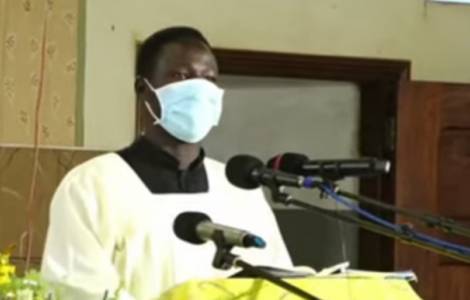AFRICA/UGANDA – COVID-19: The country is torn between the earthly economy and the spiritual economy

AFRICA/UGANDA – COVID-19: The country is torn between the earthly economy and the spiritual economy
Wednesday, September 29, 2021
Kampala (Agenzia Fides) – “I hope that our desire for an earthly economy will not come at the expense of the spiritual economy,” declared James Kakura James, a Ugandan seminarian, speaking about the reopening of public spaces and the continued closure of places of worship. Worship in the country due to the Covid-19 emergency.
“Churches and mosques have given life to Uganda's current economy,” said the memo received by Agence Fides. “There are many who wonder whether places of worship are considered more vulnerable to the spread of the virus than public transport and markets, but for us, who know the meaning and power of communion, common prayer and church gatherings, this theory does not hold up – explains the seminarian – and places are reopening. Others, not because they are safer, but because they are considered essential for the future of the country's economy.
Kakura explains that it was European missionaries, including the White Fathers, the St. Joseph Missionary Society of Mill Hill, and the Comboni missionaries, who introduced formal education to Uganda in the late nineteenth century. “We cannot forget the enormous contribution that the Ugandan Church has made to the economy since the arrival of places of worship in the country.”
“Religious orders initiated formal education to eradicate ignorance in society,” the Ugandan bishops emphasized back in 1997. “Missionaries were pioneers in educating the children of leaders who later became managers at the top of the country’s economy. The same missionaries continued to build schools, hospitals and roads. For his part – the Ugandan seminarian insists – it was Muslim merchants who established trade in Uganda and we owe our economy to them as well.
The primary role of the Church is to evangelize and sanctify the people, and we must not forget the role of religion in forming consciences. “A people already sanctified through the work of the Church becomes an instrument of peace and love, a central factor of continued economic growth. Any government that wants to develop the economy must first sanctify and shape the conscience and morals of its people. “This can only be done through the sacraments, which can never be received virtually,” Kakura explains. How can one think about accepting the sanctification that comes through baptism, celebration of the Eucharist, penance, or anointing via radio or television? Can the Eucharist ceremony be broadcast on television? Does everyone have a radio, TV or YouTube? concludes the young seminarian.
(JK/AP) (Agenzia Fides 09/29/2021)
Involved:

“Award-winning zombie scholar. Music practitioner. Food expert. Troublemaker.”









